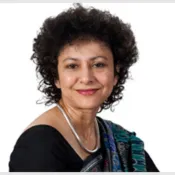Watch the full event recording here
In situations of armed conflict, access to and the integrity of digital technology is of significant importance and can save lives. At the same time, the digitalization of armed conflicts brings new threats for civilians and those who work to protect them. While state and non-state actors have used digital technology to overcome their adversaries militarily, digital technologies have also been used to disable critical civilian infrastructure and services, to incite violence against civilian populations, to disrupt medical and humanitarian relief efforts, or to undermine trust in the latter. What limits does international humanitarian law set on such operations, and which legal and policy measures should belligerents, tech companies, and humanitarian organizations take to protect civilians from new threats?
Over the past two years, the ICRC's President has chaired a 'Global Advisory Board' of high-level leaders and experts from the legal, military, policy, technological and security field to advise the ICRC on digital threats and identify concrete recommendations to protect civilians against them. In this event, the Board will present its final report featuring four guiding principles and a set of concrete legal and policy recommendations to states, belligerents, tech companies, and humanitarian organizations to prevent or mitigate digital threats.
The event will feature opening remarks by Mirjana Spoljaric Egger, President of the ICRC, and will be moderated by William Worley, Policy Reporter/Editor at The New Humanitarian, along with the following panellists:
- Cordula Droege, Chief Legal Officer and Head of Law, ICRC
- Irene Khan, UN Special Rapporteur for Freedom of Opinion and Expression
- Gulshan Rai, former National Cyber Security Coordinator, Government of India
- Marcus Willett, former Cyber Director, GCHQ
- International sign language interpretation will be provided at this event. -
Watch the full event recording here






